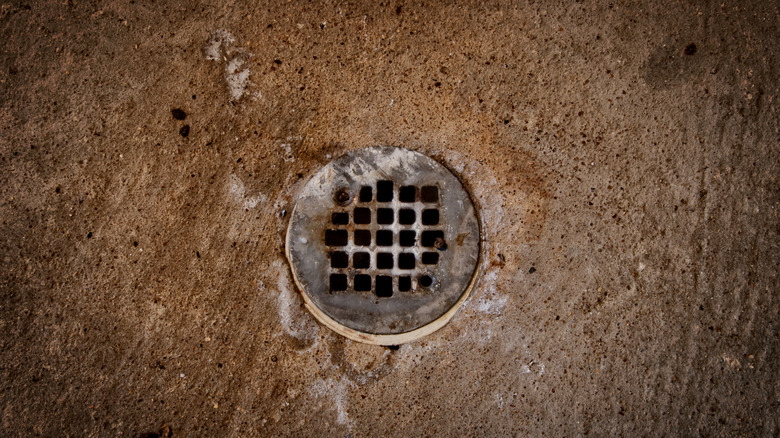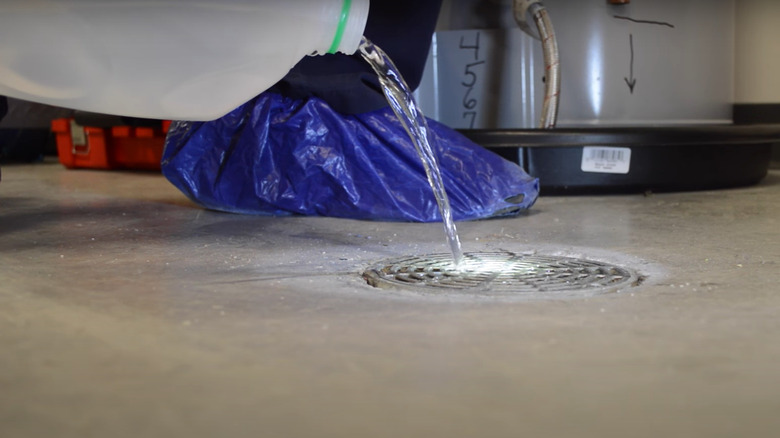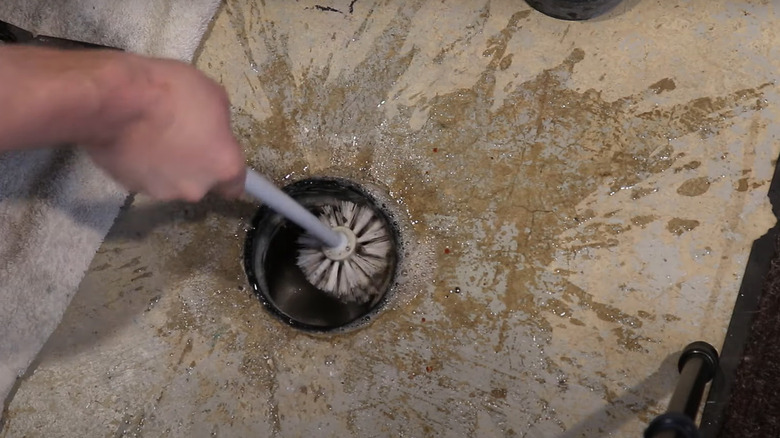Why Your Basement Floor Drain Smells So Bad (And Easy Tips To Eliminate Odors)
You descend the stairs into your basement and immediately wonder, "Ugh, what's that smell?" Your tingling senses point at the floor drain, so you conduct a mini-inspection to verify your suspicion. But what's making the drain give off an unbearable, putrid odor, turning your basement into a sewage treatment unit? The loss of the trap seal! Like most drains, basement floor drains come equipped with a "P-trap," a U-shaped pipe that creates a gravity barrier using water. Simply put, your floor drain cover sits on top of a "riser" section, which links to the trap, eventually leading into a trap arm.
Ideally, the drain trap should hold some water so that sewer gasses, insects, or volatile compounds have no way of backing into your home. But if you use the basement sparingly, the water evaporates from the drain's P-trap, allowing the foul smells to make an unenjoyable comeback. Fret not, though, since there's an easy fix: Just add water.
Resolving smelly basement floor drains
Also known as "dry drains," basement floor drains turn stinky when their traps lose water. So, filling them back up reprimes the seal and settles the issue. To do so, fill a 5-gallon bucket with water. Don't fill it all the way to the top — this will make it easier to pour the water. Now, slowly empty the bucket into the floor drain. This should replenish the P-trap with the required amount of water, with the rest flowing into the main sewage line. You'll soon notice a perceptible dent in the room's stench. If necessary, pour a few drops of vinegar to neutralize the residual smell.
To prevent the problem from recurring, pour water down your basement floor drain every few months. But if you tend to be forgetful, tip a few ounces of mineral oil into the drain (after you've topped it with water) to lower the rate of evaporation. Don't overdo it, though. Another option is to plant a trap seal primer in the drain, assuming your plumbing or building code doesn't mandate it. These devices refill the trap whenever they sense a drop in water pressure, staving off bad odors.
Unclogging basement floor drains
If your floor drain continues to smell like sewage, chances are it's blocked after collecting all the hair, dust bunnies, debris, and dirt roaming in your basement. Another possibility is that it still harbors bacteria in the "riser" section. In such cases, your best bet is to unclog the drain using a toilet plunger and toilet brush. Remove the grate, pour in a household cleaner, and foam it with water. Scrub the riser section with the brush until it is spick and span. Finally, rinse off the area with water.
Alternatively, DIY a cleaning solution by combining 1 cup each of vinegar and baking soda. Decant the mixture into the drain and allow it to bubble. Wash it down with 3 cups of boiling water. Repeat if the smell lingers. But if this proves futile, clean your drain with an auger or a snake. Lower the snake while rotating it until it hits the bottom, then reel it back with the solid, clogged debris. Also, replace the cleanout plug if it looks worn in order to keep rotten odors at bay. And, finally, if none of these methods work, call a plumber.


